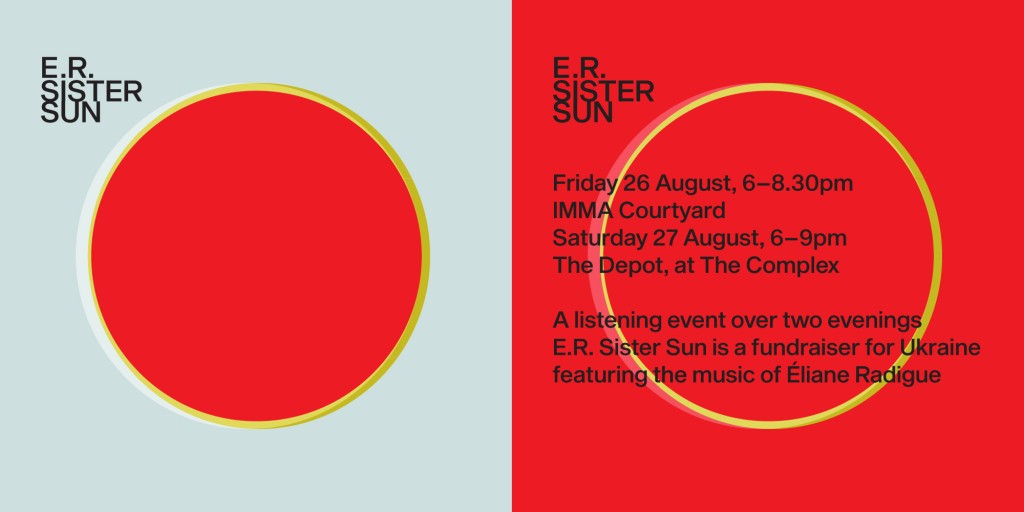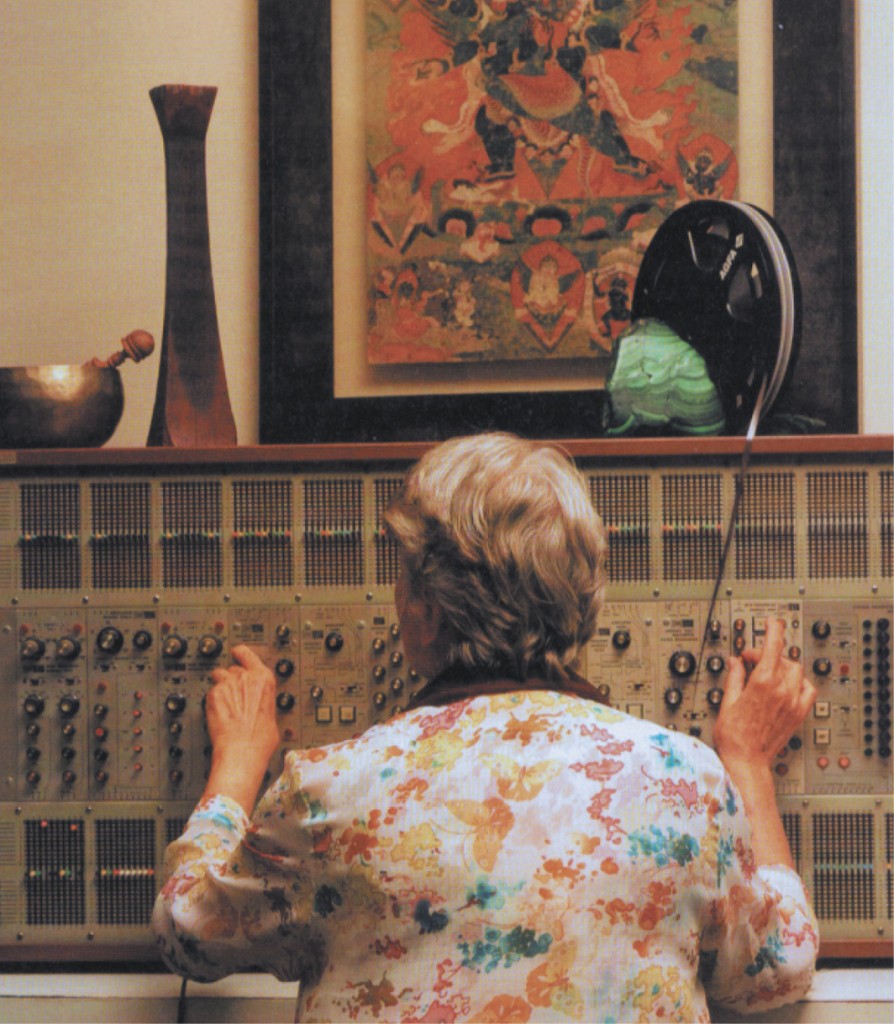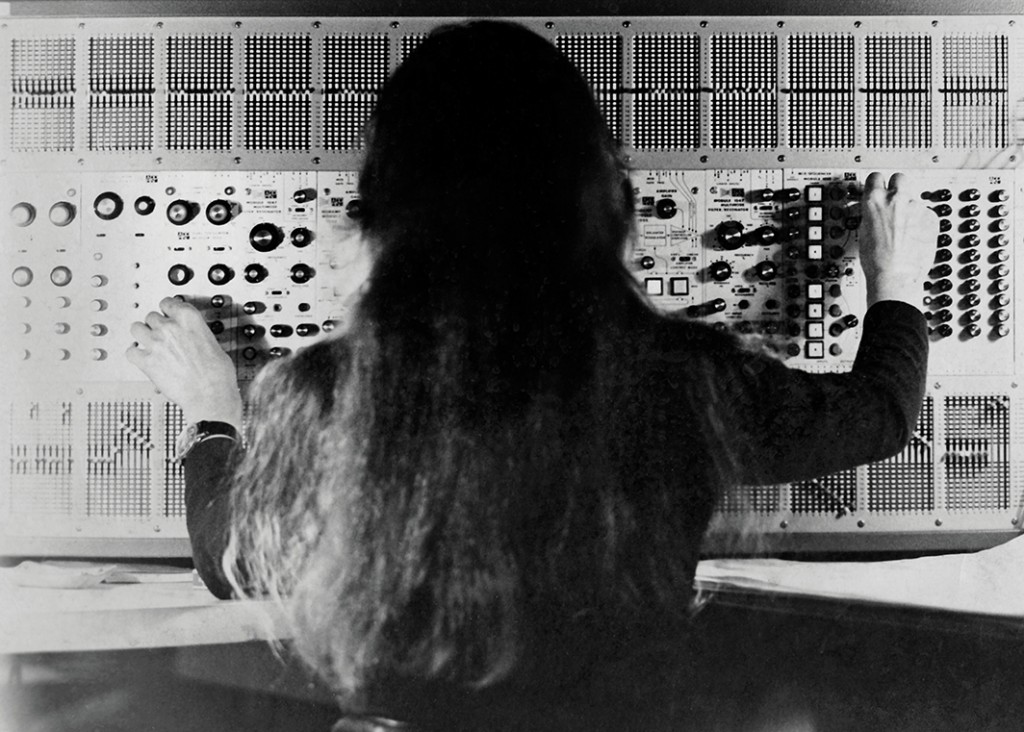 Conceived and produced in kind by John Graham, co-hosted by IMMA and The Complex, E.R. Sister Sun is a listening event over two evenings featuring the music of Éliane Radigue. All ticket proceeds will be donated to UNICEF to support those affected by the war in Ukraine.
Conceived and produced in kind by John Graham, co-hosted by IMMA and The Complex, E.R. Sister Sun is a listening event over two evenings featuring the music of Éliane Radigue. All ticket proceeds will be donated to UNICEF to support those affected by the war in Ukraine.
IMMA Courtyard – Friday 26 August, 6 – 8.30 pm
The Depot, at The Complex – Saturday 27 August, 6 – 9 pm
Ticket Link + Capacity 300: Ticketed €20 all ticket proceeds go to UNICEF
……………………………………………………………………………………………………
IMMA Nights partners with The Complex to present E.R. Sister Sun, a listening event that pays homage to the music of composer Éliane Radigue. All ticket proceeds will be donated to the charity UNICEF Ireland, and the urgent humanitarian aid campaign to help those most impacted by the war in Ukraine.
‘Thank you for your kind message and the nice organisation of a place and time for this listening event in Dublin. I took notice and will join you by mind.’
Éliane Radigue (2022) (1)
As part of IMMA Nights, E.R. Sister Sun stages a presentation of the intoxicating music of Éliane Radigue. Marking her 90th year, the programme will immerse visitors in the evolution of Radigue’s music over time, both its signature durations, and through the span of her long career to date. The programme will be presented on consecutive ‘Sister’ evenings; the first in IMMA’s Courtyard and the second in The Depot at The Complex.
The heart of Radigue’s pioneering music is a sonic exploration of intermediary spaces, where moments of transition are superimposed and extended into a constantly evolving mass of sound. Playing with our perceptions of time, the listening experience becomes almost geological, a deep register of fascinated attention. The composer describes her method very simply, ‘My music evolves organically. It’s like a plant. We never see a plant move but it is growing continually.’ (2)
Dedicated to the important act of listening together, this joint venture was conceived by the artist John Graham in the days following the Russian invasion of Ukraine and is staged as a fundraising event. One ticket covers entry into both venues and all proceeds will be donated to the charity UNICEF, in response to its urgent appeal for humanitarian aid needed for those most affected by the war in Ukraine.
……………………………………………………………………………………………………..
E.R. Sister Sun Programme
Fri 26 August, 6 – 8.30pm, IMMA Courtyard
Playing from vinyl, CD, and digital sources, the programme will begin on Friday evening, August 26 at IMMA, with examples of early experimental works using tape loops and feedback, followed by a more recent composition for large ensemble, OCCAM Ocean II.
Sat 27 August, 6 – 9pm, The Depot, at The Complex
The programme will culminate in a presentation of Radigue’s electronic masterpiece, Trilogie de la Mort. While seating will be provided, the work is almost three hours long – a duration essential to its cumulative effect – and listeners are encouraged to bring something comfortable of their own to sit, wrap up in, or lie on.
As listeners, we have become familiar with music as a continual presence, the often indiscriminate sounds that come to us through radio, television, the internet and other sources. Over the course of two evenings, in different settings but with a shared ambition, E.R. Sister Sun invites the audience to come together in a more focused kind of listening. In the year of her 90th birthday, Éliane Radigue’s music continues to move forward, breathing life into duration, celebrating the life that moves within sound.
……………………………………………………………………………………………………
About Éliane Radigue
Éliane Radigue was born in 1932 in Paris. Her innovative work has evolved in distinct phases; simply put, through her early use of feedback and magnetic tape, through the use of modular synthesisers (especially the ARP 2500), and more recently, through the use of acoustic instrumentation and musicians other than herself – all the while maintaining her unique compositional approach.
She describes an early experience of listening to planes flying over her apartment, ‘Inside this mass of sound, I was able to sing songs to myself. I sailed inside. You can sail with the ear in a mass of sound and tell yourself many stories … You can make a little symphony of anything’. (3) In the 1950s, she worked in the studios of ‘Musique Concréte’ pioneers Pierre Schaeffer and Pierre Henry. Influenced by them, but developing her own musical direction, her early tape works include the use of feedback as compositional material. Harnessing this rogue element, compositions such as Stress Osaka and Opus 17 (both 1970) caught the ears of American minimalist composers like Steve Reich. Spending time in New York, Radigue encountered influential figures of the American avant-garde, including John Cage, La Monte Young and her exact contemporary, Pauline Oliveros. While in America, Radigue composed on a synthesiser for the first time, writing Chry-Ptus (1971) on the Buchla 100 at the NYU Lab, run by Morton Subotnik.
Returning to Paris, Radigue purchased an ARP 2500 and this modular synthesiser became her primary way of making compositions for the next thirty years. Perhaps her most substantial work from this period, Trilogie de la Mort (1985 – 93), was influenced by her Buddhist practice and the Bardo Thodol, (aka The Tibetan Book of the Dead). The first of its three sections, Kyema (Intermediary States), was dedicated to her son, Yves, who died a short time after its completion.
More recently, the composer has made works for acoustic instruments. A series of live performances and recordings, collectively named OCCAM Ocean, are developed through a series of one to one meetings between Radigue and selected, individual musicians. No written score is produced, instead, the musicians effectively become a living score, performing a music that only they can play. Radigue refers to these important collaborators as her Chevaliers d’Occam. One such, the American musician and composer, Catherine Lamb, describes the essence of Radigue’s musical approach – ‘I can’t think of work that more greatly concentrates its energy around the notion of transitional states – the infinite becoming.’(4)
Notes by John Graham
- From email exchange between John Graham and Éliane Radigue
- Julian Cowley, ‘The Primer – Éliane Radigue’, The Wire 456, London, (2022), p30
- Julia Eckhardt, ‘Intermediary Spaces’, Brussels: Umland Editions, (2019), p64
- Nate Wooley (ed), ‘Sound American’ No.26, (2021), quoting Catherine Lamb, p86
……………………………………………………………………………………………………
About Partners
E.R. Sister Sun was conceived and produced in kind by artist John Graham, in collaboration with IMMA and The Complex. Supported by Peter Maybury, Kate Butler, and others.
The Complex is a multi-disciplinary arts centre in Dublin’s north inner city. It is committed to providing arts to all people and space to artists for all art forms. Combining sixteen studios, a large warehouse performance space and a gallery, it brings a diverse range of arts practitioners and audiences together in one dynamic place. The Complex is interested in work that is of meaningful social value and its mission is to enrich local communities and promote well-being with inspiring arts programmes.
IMMA
The Irish Museum of Modern Art, Royal Hospital Kilmainham, Dublin 8, D08 FW31, Ireland, Phone +353 1 6129900 https://imma.ie/whats-on/immaoutdoors-ukrainian-fundraising-event/


